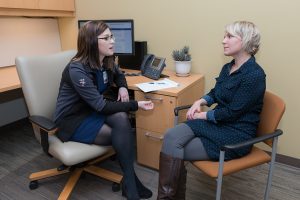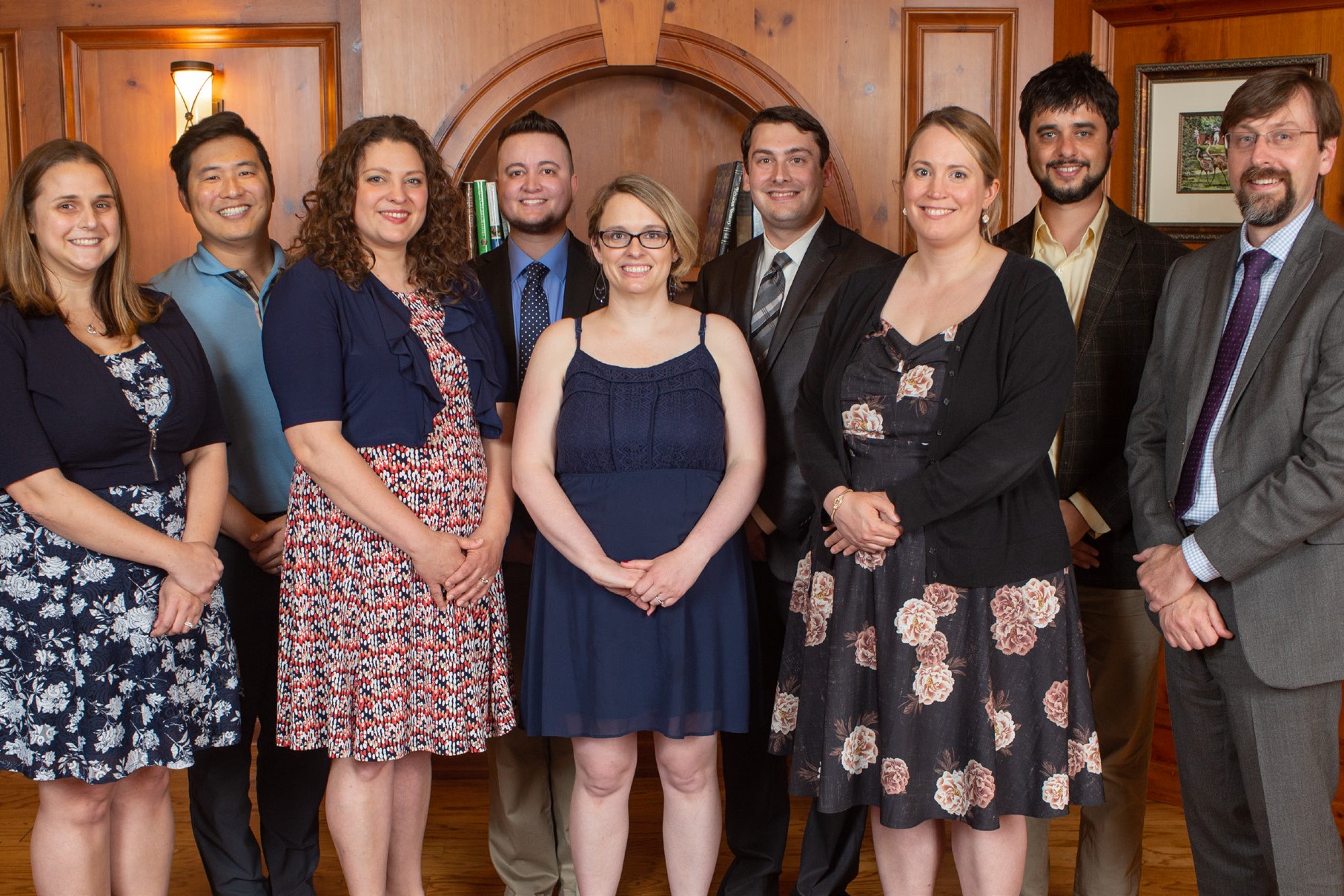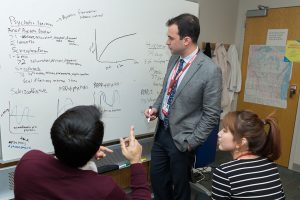Welcome from the Residency Training Director
Psychiatric illnesses are common medical disorders, and responsible for tremendous costs, disability, and death. However, they are treatable.
We are committed to helping our residents to become outstanding psychiatrists and to preparing them to be exceptional clinicians, educators, researchers, advocates, and leaders. In the Department of Psychiatry, you will be part of a community committed to compassionate and evidence-based clinical care, education and training, and cutting-edge neuroscience research which will further our understanding of mental illness. We are committed to diversity, equity, and inclusion and our Department is focused on efforts to combat structural racism. We also strive to reduce the stigma associated with mental illness through advocacy, and to provide support and access to care for people with mental illness.
Our residents are a part of clinical care teams in a variety of hospital, outpatient, and community settings. Residents learn acute care skills on hospital services, integrate psychotherapy and psychopharmacology across 3 years in our longitudinal clinic, and as part of community programs. Residents also have the option to join focused tracks to develop additional skills. Clinical Educator Track residents are mentored in educational principles, develop curricula, and teaching. In the Public Health Track, you can learn to provide mental health care in rural and other settings across the state of Wisconsin. The Community Psychiatry Track exposes residents to the first assertive community treatment (ACT) team in the country, serving people with severe mental illness. Others may pursue research, with mentoring from the world-class researchers at UW.
The COVID-19 Pandemic has reshaped areas of psychiatry, as well as our departmental and personal resilience. Telepsychiatry has become a regular part of clinical care in our department and will certainly continue. Our clinical rotations and training will continue to optimize our approach to both training and practice in telepsychiatry.
This past year challenged us to do more to acknowledge and address structural racism that affects our communities. As stated above, our Department is committed to anti-racism and equity efforts. As a residency program, we are committed to recruitment and retention of residents from diverse backgrounds and training all our residents to care for all who are part of our increasingly diverse population in Wisconsin and the United States.
Training in psychiatry is rewarding, but also challenging, and at times can be stressful. We work to foster a sense of community and collegiality that are foundational to thriving during training. A variety of wellness programs have also been developed to provide additional support. Residents in each class are part of T-groups, Eudaimonia wellness activities, and mentoring programs. Additional supports are available when challenging situations arise: our Collegial Support Program, Employee Assistance Program, and other individualized approaches.
Please explore our website and feel free to contact me to learn more about what our Psychiatry Residency in Madison can offer.
Best,
Michael
We believe that a psychiatry residency should be a rigorous but humane environment in which one can develop into a highly skilled psychiatrist. We will help you master the clinical skills and knowledge base necessary to practice successfully. We emphasize collegiality, communication and responsibility so that you can develop an identity as a professional and as a leader. We strive to be mindful of your need to balance professional and personal responsibilities and goals.
The mission of the University of Wisconsin Psychiatry Residency is (a) to help residents learn to compassionately and effectively prevent, diagnose, and treat mental illness and their sequelae, and (b) to facilitate residents’ contributions to the field of medicine and to society through scholarship, education, and service.
Meet Our Leadership Team
Michael Peterson, M.D., Ph.D.
Position title: Vice Chair of Education, Residency Training Director, Professor (CHS Track)
Laurel Bessey, M.D.
Position title: Associate Residency Training Director, Assistant Professor (CHS Track)
Stuart Jones, M.D.
Position title: Associate Residency Training Director; Associate Professor (Clinical Track)
To reach a member of leadership, call 608-263-6106 or email residency@psychiatry.wisc.edu.

















